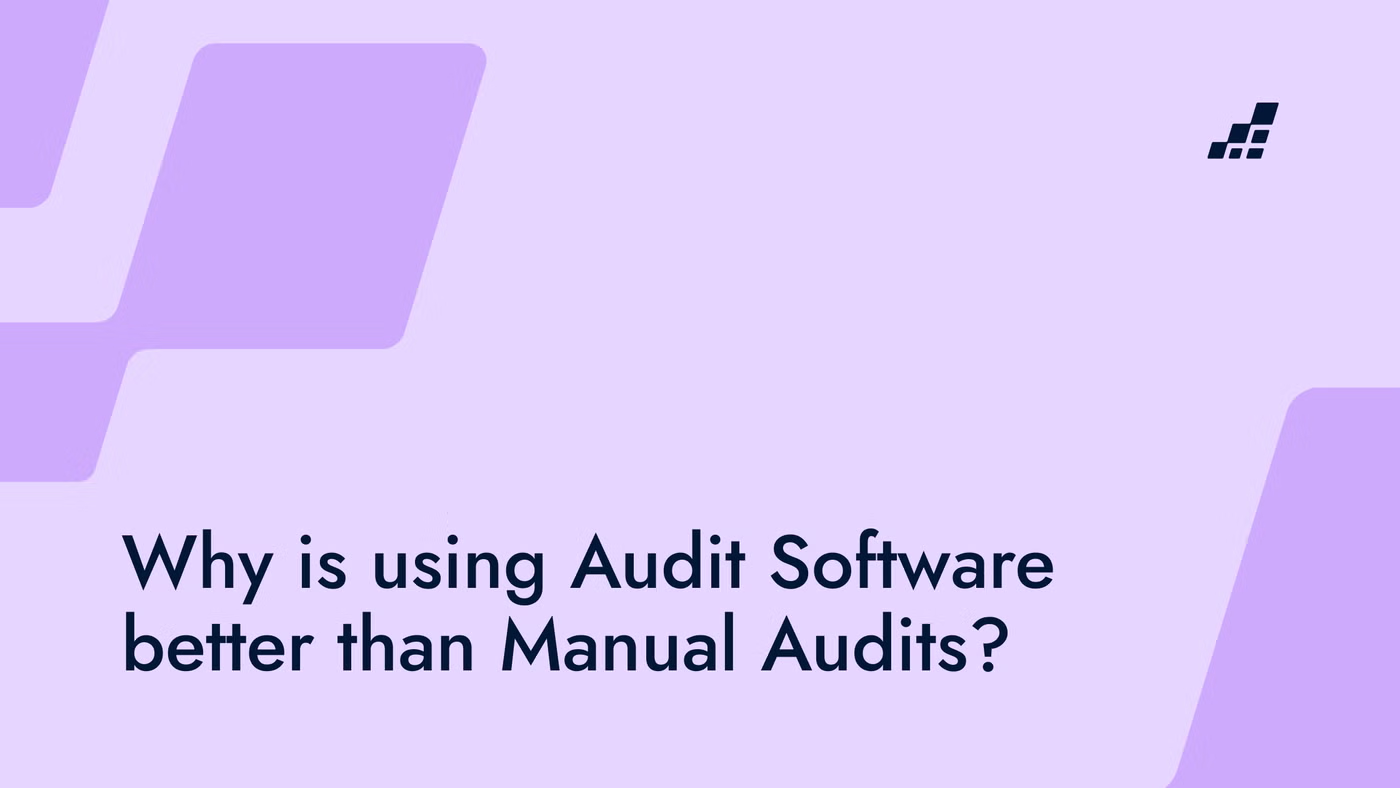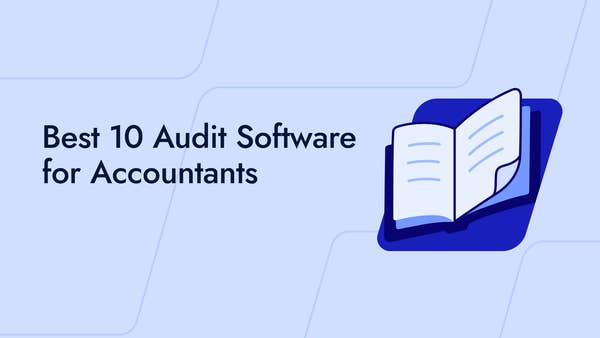- /
- Blog
Why is using Audit Software better than Manual Audits?

Tech and AI have transformed the way we conduct business operations, including the crucial task of auditing. Gone should be the days when auditors had to sift through piles of paperwork and manually track down every financial transaction.
With the advent of audit software, the auditing process has become more efficient, accurate, and streamlined. Let's delve into the reasons why audit software has become the preferred choice over manual audits.
Understanding the Basics of Audit Software
Audit software is any specialized program designed to automate various audit procedures and tasks.
For example, audit software could provide auditors with a comprehensive toolkit to assess risks, test internal controls, analyze data, and generate insightful reports.
With intuitive processes and powerful functionalities, audit software offers immense value to both auditors and organizations; firms and their clients alike.
Audit software helps auditors navigate the intricate landscape of financial audits. It’s designed to handle large datasets, allowing auditors to analyze information quickly and accurately AND to focus on the more interesting parts of their role.
Key Features of Audit Software
- Streamlined Audit Process: Audit software centralizes and streamlines the audit process, fostering collaboration through document management, workflow automation, and issue tracking.
- Document Management: Audit software ensures efficient document organization, providing quick access to relevant information and reducing the risk of missing critical documents.
- Workflow Automation: Automation in audit software allows for the definition and streamlining of the audit process, freeing up time for value-added tasks like data analysis and risk assessment.
- Issue Tracking via Audit Trails: Audit software's issue tracking feature enables effective monitoring and management of audit findings, ensuring accountability and prompt resolution.
- Collaboration Enhancement: Audit software actively improves collaboration. By providing a shared platform for communication, standardised methodologies, and knowledge sharing, it contributes to a more cohesive and productive audit team.
The Limitations of Manual Audits
- Limited Scalability: Manual audits grapple with scalability issues, particularly when handling larger datasets. As the volume of financial data increases, the manual process becomes progressively time-consuming and susceptible to errors.
- Inconsistent Data Handling: Maintaining consistency in data handling procedures poses a challenge for manual audits. Varied interpretations and approaches among auditors can lead to discrepancies, hindering the overall audit process.
- Compliance Risks: Keeping pace with changing regulatory requirements is an ongoing struggle in manual audits. The risk of non-compliance rises as auditors may overlook or misinterpret complex regulatory changes.
- Reduced Focus on Analysis: The manual nature of audits consumes a substantial portion of auditors' time in routine tasks, limiting the available time and focus for in-depth analysis. This hinders the identification of potential risks and opportunities.
- Collaboration Challenges: Manual audits face difficulties in facilitating seamless collaboration among audit team members. The absence of a centralized platform for communication and data sharing can lead to inefficiencies in teamwork.
Comparing Audit Software and Manual Audits
Now that we've explored the limitations of manual audits, let's discuss how audit software surpasses manual audits in terms of efficiency, accuracy, and scalability.
Efficiency and Speed
Audit software significantly enhances efficiency by automating time-consuming tasks. With data extraction and analysis capabilities, it drastically reduces the time required to obtain and evaluate relevant information.
Auditors can quickly identify trends, anomalies, and outliers, enabling them to focus on critical areas that require further examination. The automation of workflow processes also ensures smooth collaboration and seamless progress tracking.
Accuracy and Consistency
While manual audits are prone to human error, audit software minimizes the risk of inaccuracies. By leveraging advanced algorithms and predefined audit procedures, it ensures consistent application of audit methodologies and standards.
The software performs complex calculations with precision, leaving no room for calculation errors. This results in accurate audit findings and enhances the credibility of the audit process.
Scalability and Flexibility
As organizations grow and their operations become more complex, manual audits struggle to keep pace.
Audit software, on the other hand, offers scalability and flexibility to adapt to changing audit needs. It can handle large volumes of data and adjust to evolving regulatory requirements.
With customizable templates and built-in analytics capabilities, auditors can tailor the software to fit specific audit objectives and industry-specific compliance standards.
The Impact of Audit Software on Audit Quality
By replacing manual effort with automated processes, audit software significantly enhances the quality of audits.
Let's explore two key aspects where audit software makes a notable impact.
Enhancing Audit Precision
Audit software eliminates the guesswork and subjectivity associated with manual data analysis.
Audit software can identify patterns, exceptions, and outliers that might go unnoticed in manual audits. This enables auditors to conduct more precise risk assessments and effectively target their audit procedures to areas with higher risks or potential fraud.
Facilitating Comprehensive Analysis
Audit software frees up an incredible amount of time for auditors. Auditors can use this free time to focus on more interesting and more complex aspects of their role.
This allows for deeper analysis which enhances auditors' ability to identify control weaknesses, compliance gaps, and operational inefficiencies.
Consequently, audit software enables auditors to provide more valuable recommendations to the management and drive positive organizational change.
Conclusion
Audit software offers numerous advantages over manual audits. From efficiency and accuracy to scalability and compliance management, it revolutionizes the way audits are conducted.
Embracing audit software not only saves time and resources but also enhances the overall quality of audits.
.png?width=600&quality=70&format=auto&crop=16%3A9)
.png?width=600&quality=70&format=auto&crop=16%3A9)
